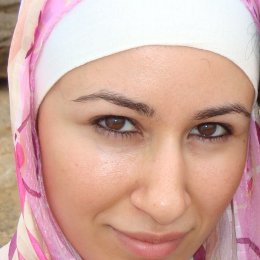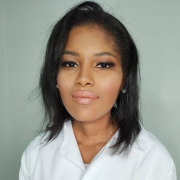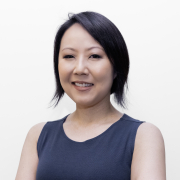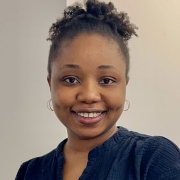How did you become interested in research relating to Hypertension?
As a third year medical student I got the opportunity to get involved in research related to renovascular hypertension caused by fibromuscular dysplasia. In my final year as a medical student I got the chance to do research training in the area of vascular medicine, which lead to the PhD-project that I am currently working on.
Describe your research & the program/lab (info of your supervisor) that you are in?
My research topic is ‘Carotid baroreflex activation as a therapy for resistant hypertension’. Carotid baroreflex activation is a renewed concept to treat patients with drug-resistant hypertension. Our medical center was one of the first centers, which started clinical trials with the new carotid baroreflex activation devices and has more than 8 years a successful experience in this field. My work (under supervision of Dr. Kroon and Prof. de Leeuw) is to further analyse and describe how this therapy works and what the long-term effects are; during my research period I will perform analyses and studies to further describe the effects and working mechanisms of this therapy. Many questions are still waiting to be answered in this area.
What do you consider to be your substantial scientific contribution so far (provide Pubmed PMID if possible)?
So far, I consider my last manuscript entitled ‘’Renal responses to long-term carotid baroreflex activation in drug-resistant hypertension’ (submitted) to be a substantial scientific contribution as it describes the safety and efficacy of carotid baroreflex activation therapy on renal level.
What is your favourite manuscript from a lab other than your own (provide Pubmed PMID if possible)?
This was one of the first articles I read to get acquainted with my current research topic:
Michal Doumas, Daqing Guo & Vasilios papademetriou. Carotid baroreceptor stimulation as a therapeutic target in hypertension and other cardiovascular conditions. Expert Opin. Ther. Targets2009: 13(4).
What facilities are essential for your research?
I perform research in patients known with therapy-resistant hypertension. It is not hard to find these patients, as many hypertensive patients do not achieve a blood pressure below 140/90 mmHg despite the use of antihypertensive medication. However, an essential part of our work is to be a strong team to guide and guard all patients during this therapy and provide the best medical assistance for a patient in need.
Where do your research strengths lie? Why? What are your research weaknesses? How will you improve?
During my PhD I became more and more critical towards my own work, which is an important characteristic of a good scientist. But you can never be critical enough in science, so this can always be improved for me personally. In addition, I am open to new ideas and try to incorporate them in my own research as much as possible. However, my experience in research is still limited and I hope to stay involved in research to extend my experience and knowledge in the future.
Describe your proudest moment in science, and the most challenging instance that you had to overcome (lessons learnt) so far?
My proudest moment so far was my nomination for the New Investigators Award (ISH Sydney, 2012). The most challenging moment in my work is the interpretation of the results (is this a real effect or a miscalculation, how can this be explained, could it be something else etc). An important lesson for me is to stay open minded and to believe in the unexpected.
Which conference did you first present in? How was your experience?
The first conference I presented in was ESH, Milan 2011. I was terrified and praying no one will ask me any difficult questions in a room filled with many experienced scientists. Thank god it went well and I realized that no one knows better than our research team what and why we performed this research and what its contributions and consequences are. The comments I received form the audience also helped me to improve our research and bring it to a higher level.
What upcoming conferences will you be attending, and what is the furthest you have traveled for a conference?
The furthest conference I have attended was the ISH 2012 inSydney,Australia. Recently, I submitted a new abstract to the upcoming ESH 2013 inMilan,Italy. I will also attend the annually held Dutch Cardiovascular Conference soon.
How did you know about ISH/NIN and its activities?
After registering for the ISH 2012 I got invited to join NIN and the New Investigators Symposium. It was an honour for me to attend the symposium. I met a lot of new and enthusiastic investigators from everywhere around the world, got very interesting questions about my research and received very good feedback and new idea’s.
What area(s) do you wish to specialize in the future?
After finishing my PhD, I would like to specialize in Internal Medicine. It is a broad field with many interesting and challenging subspecialties. I may sub-specialize in Vascular Medicine, but I like to keep other options open for now. However, I would like to continue doing research later in my career.
Who is your role model in Science? Why?
This is a difficult question. I do not think there is a perfect scientist or a role model. But if I have to mention one, than I will choose my supervisors (Prof de Leeuw and dr. Kroon) who always supported me to go for more, but in the same time to stay honest and admit a weakness or a mistake.
What are your scientific goals? Advise for talented emerging scientists?
I hope that my research will help patients suffering from resistant hypertension to have a normal blood pressure and reduce their risks on cardiovascular damage and events. It may sound very idealistic, but I think this is one of the things that every investigator should have to be able to keep performing good and honest work.





















